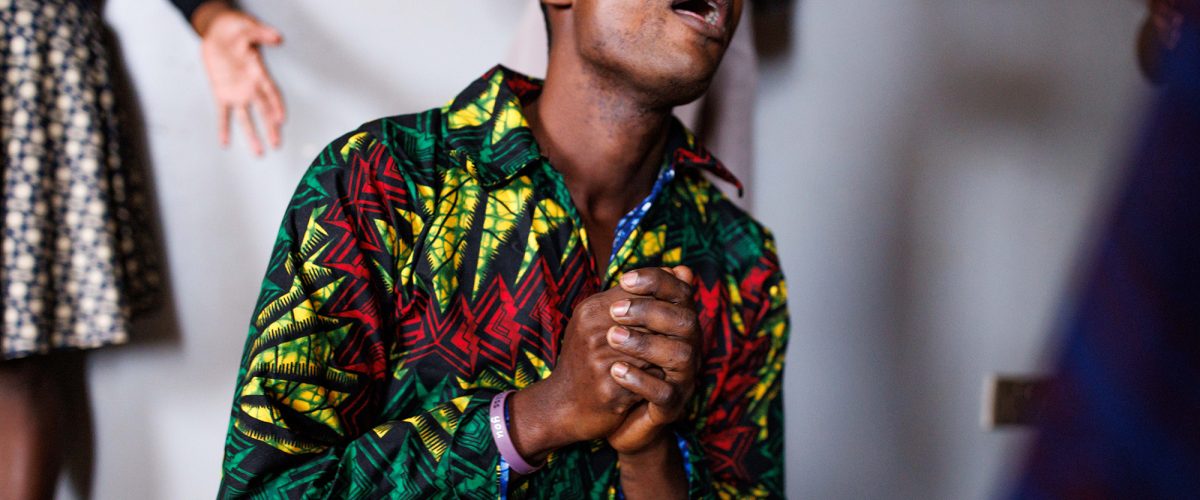Uganda’s harsh anti-LGBTQ policies have created financial repercussions, as the World Bank has suspended funding to the East African country.
The World Bank said it was halting funding for new projects in the country due to the passage of an extreme anti-homosexuality bill adopted by the country’s Parliament and signed by Yoweri Museveni, the country’s president.
“Uganda’s Anti-Homosexuality Act fundamentally contradicts the World Bank Group’s values.”
“Uganda’s Anti-Homosexuality Act fundamentally contradicts the World Bank Group’s values. We believe our vision to eradicate poverty on a livable planet can only succeed if it includes everyone irrespective of race, gender or sexuality,” the aid organization said in a statement. “This law undermines those efforts. Inclusion and non-discrimination sit at the heart of our work around the world.”
The World Bank further noted its “goal is to protect sexual and gender minorities from discrimination and exclusion in the projects” it finances.
Therefore, “no new public financing to Uganda will be presented to our board of executive directors.”
Museveni responded that Uganda “will develop with or without loans.”
He called it “unfortunate” that the World Bank and others “dare to want to coerce us into abandoning our faith, culture, principles and sovereignty, using money.”

Ruhweza Ibrahim
The World Bank’s decision is no small matter, according to Ruhweza Ibrahim, a Uganda-based journalist.
“Since Uganda has been (a recipient of) the World Bank’s aid, it will greatly affect it. The country could be forced to look for other funders who may come up with their own demands just like the World Bank,” he said.
Ibrahim believes the World Bank was wrong in its judgment, however. “I don’t think it was the right decision to withhold funding because Uganda as a country and its people have their norms or cultures they (adhere to). Homosexuality is not part of them, and if it’s a thing they never liked, the World Bank and other funders should respect their decisions.”
Uganda is a poor country that already faces many challenges, Ibrahim said, and should not face yet another burden from those who give global aid.
What’s more urgent, he charged, is transparency in the management of funds. “Ugandan officials are more corrupt because of the excess funds the World Bank gives.”
Problem Masau, a Zimbabwean journalist, also considers the World Bank’s decision to cut funding to Uganda as interfering in a sovereign country’s affairs.
“The West should not impose their values on Africans,” he said. “They should accept every nation has its tradition and values. In Africa, we detest homosexuality, and the (global aid) institutions should not tie their aid and donations with conditions that are un-African. Museveni has his own weaknesses, but on this one he is right and World Bank can keep their aid.”

Hillary Taylor Seguya
Hillary Taylor Seguya, a Ugandan rights activist who lives in the United States, holds a different view.
“The U.N. is the custodian of the Universal Declaration of Human Rights and, given its slogan of “Leaving no one behind” in its agenda for 2030, I consider the action of the World Bank to halt loans due to the enacted draconian anti-homosexuality law in Uganda entirely appropriate,” he told BNG. “The institution’s action prioritizes human rights and sends a powerful message to other African countries that may be contemplating similar laws. This is a matter of life and death, and I applaud the international community for standing in solidarity with the victimized and marginalized LGBTQ community in Uganda. Human rights are inherent and should not be cherry-picked or treated as a buffet.”
Seguya sees the world bank policy as an appropriate response to a discriminatory law. “It is high time politicians in Uganda are compelled to repeal the abhorrent law in its entirety and promote tolerance, equality, inclusion and freedom for all Ugandans. The World Bank’s action should serve as a model for other organizations to follow.”
He added: “It’s important to note that Uganda has a history of facing international backlash for its policies, such as the enactment of the ‘Kill The Gays Law’ in 2009, which led to international condemnation and sanctions. The government was eventually compelled to repeal the law in 2014, due to the economic sanctions and diplomatic pressure it faced.
“The recent reenactment of the anti-LGBTQ law in May 2023 … appears to be driven by political considerations, potential trade gains and the influence of Western evangelicals.”
There are economic consequences to such discrimination, Seguya said. “When individuals from the LGBTQ community are denied the opportunity to realize their full potential in life, it not only perpetuates social injustice but also hampers economic growth and development. Discrimination leads to a loss of human capital, innovation and productivity, which can have a long-lasting negative impact on Uganda’s economy and overall well-being. Therefore, the ramifications of these decisions extend far beyond just the LGBTQ community and affect the nation as a whole.”
Anthony Akaeze is a Nigerian-born freelance journalist who lives in Houston. He covers Africa for BNG.
Related articles:
Egged on by evangelical influence, Ugandan Parliament passes harsh new anti-gay bill
What happens when Tom Ascol finds Ted Cruz to be too liberal and quotes Leviticus 20:13?
Passage of anti-homosexuality bill in Uganda rattles LGBTQ community in Kenya


